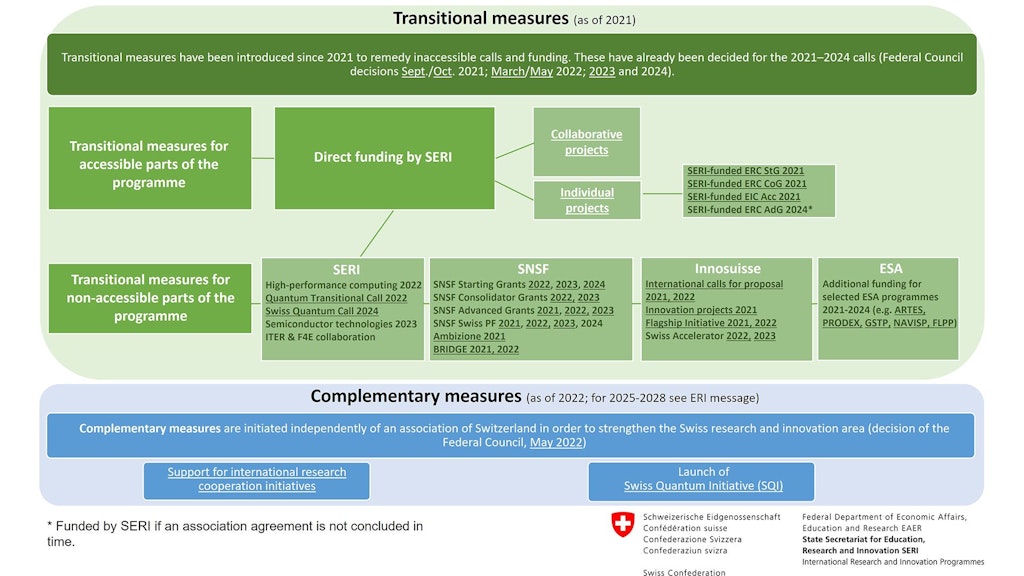Horizon package 2021–2027
The Horizon package comprises the Horizon Europe, Euratom and Digital Europe (DEP) research programmes and the ITER research infrastructure. A transitional arrangement allows researchers and innovators in Switzerland to participate as beneficiaries in calls for proposals of Horizon Europe, the Euratom programme and the DEP, from the 2025 programme year onwards.

Transitional measures 2021–2024 for the Horizon package
To minimise the consequences of Switzerland's third country status in the Horizon package, the Federal Council decided on transitional measures for the years 2021–2024. For this purpose, CHF 2.6 billion was made available, which SERI either pays out directly to project participants or distributes via the Swiss National Science Foundation (SNSF), Innosuisse and the European Space Agency (ESA).
Funding for collaborative projects under the 2021–2024 Horizon package
If you are involved in a collaborative project under the 2021 to 2024 Horizon package that has been approved by the European Commission, you can submit your application for SERI funding here. Your project will be funded by SERI for its entire duration, subject to parliamentary budget decisions.
Funding for mono-beneficiary projects under 2021–2024 Horizon package
If the European Commission has positively evaluated your mono-beneficiary project from the programme years 2021 to 2024, you can submit your application for SERI funding here. Your project will be funded by SERI for its entire duration, subject to parliamentary budget decisions.

Digital Europe Programme
As part of the Horizon package 2021–2027, the Digital Europe Programme (DEP) strengthens Europe's digital capacities and complements programmes such as Horizon Europe. With over EUR 8.1 billion in funding, the DEP covers high-performance computing, artificial intelligence, cybersecurity, semiconductors, digital skills and the use of digital technologies.

